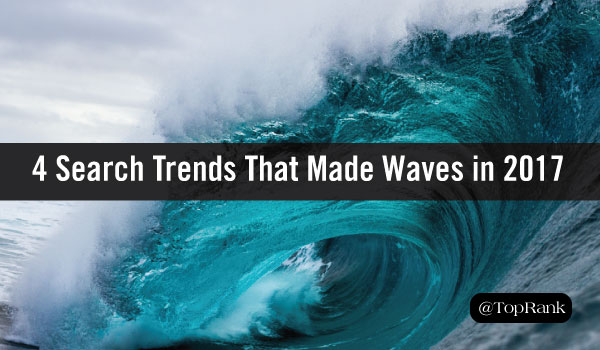Author: Joshua Nite / Source: Online Marketing Blog – TopRank®

For the past two decades, the pinnacle of search sophistication was talking to a search engine like you’re Tarzan. “What are the best hiking boots for men?” became “best hiking boots men.” “How many ounces are there in a pound?” became “number ounces pound.” Question words, articles, adjectives, or any such linguistical fanciness would confuse the humble algorithms.
But search is finally getting smarter. Search engines can parse whole phrases, decipher intent, zero in on results that will delight the searcher. And search is moving beyond the desktop or even the smartphone touchscreen, accepting new kinds of input, and displaying output in other formats than the standard ranked list of links.
In short: What consumers expect from search engines has evolved, and search engines are changing to meet these expectations. Marketers need to adapt to the new search ecosystem. If we’re still optimizing for Tarzan, we’ll miss an ever-increasing amount of traffic.
Here are five major trends in search that made waves this year, and will continue to reverberate in 2018 and beyond.
#1: Visual Search
This first trend is the newest on the list, but it seems poised to change the search landscape substantially in the future. When every smartphone has a built-in camera, why bother typing or speaking queries when you can search with a picture? Google Lens is an app that can identify buildings, products, text, and read barcodes – and it uses machine learning, meaning it’s going to get more sophisticated over time.
Right now, you can take a picture of a movie poster, book cover, or even consumer products like shampoo or mouthwash, and the app will serve up search results based on the image. The technology isn’t perfect yet, but it should be on every marketer’s radar.
#2: Voice Search
Five years ago, the only reason to talk while using a phone was if you were having an actual conversation with another human being (gross, I know, but those were different times). Now, a growing number of conversations are with Siri and…
Peter Bordes Jr
Founder & Managing Partner Trajectory Ventures. Lifetime entrepreneur, CEO, Board Member, mentor, advisor and investor.
Obsessed with the infinite realm of possibility in disruptive innovation driving global digital transformation in technology, cloud-based infrastructure, artificial intelligence, data, DevOps, fintech, robotics, aerospace, blockchain and digital media and advertising.

